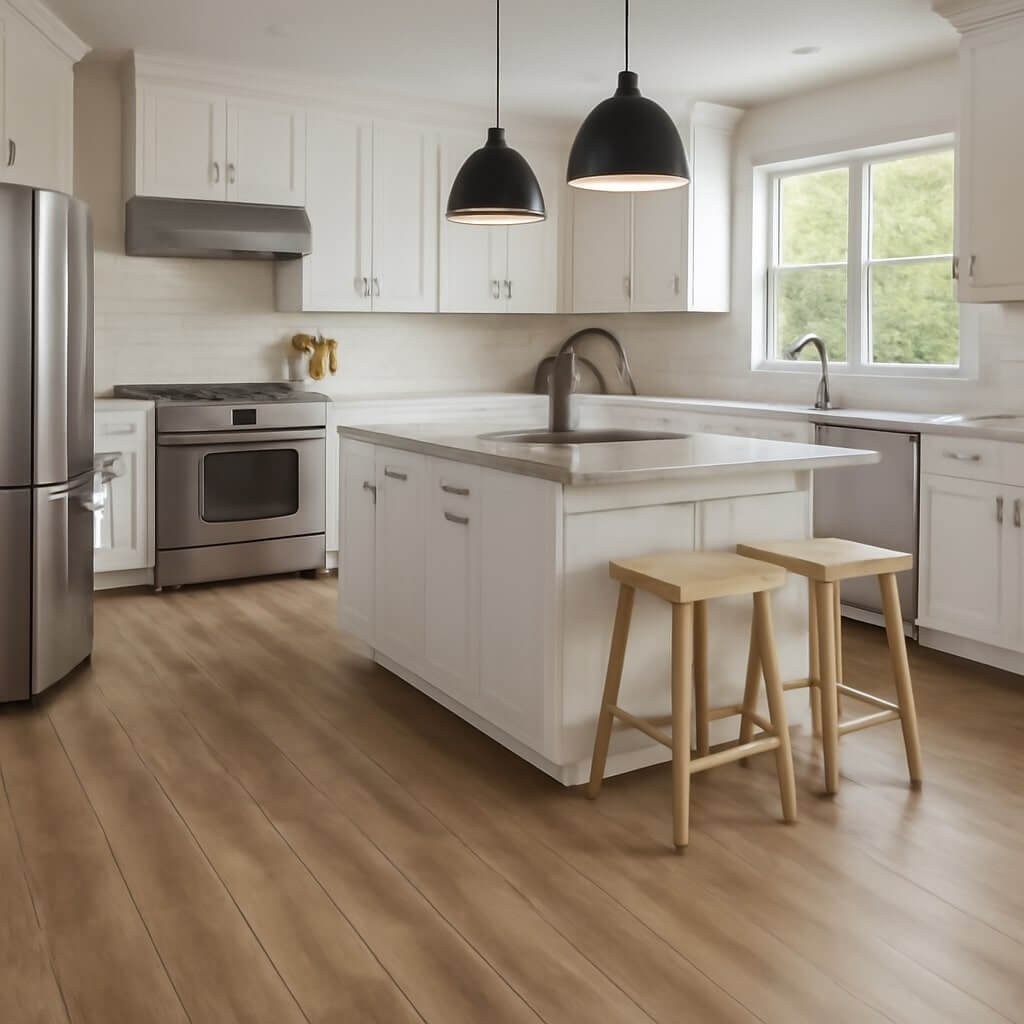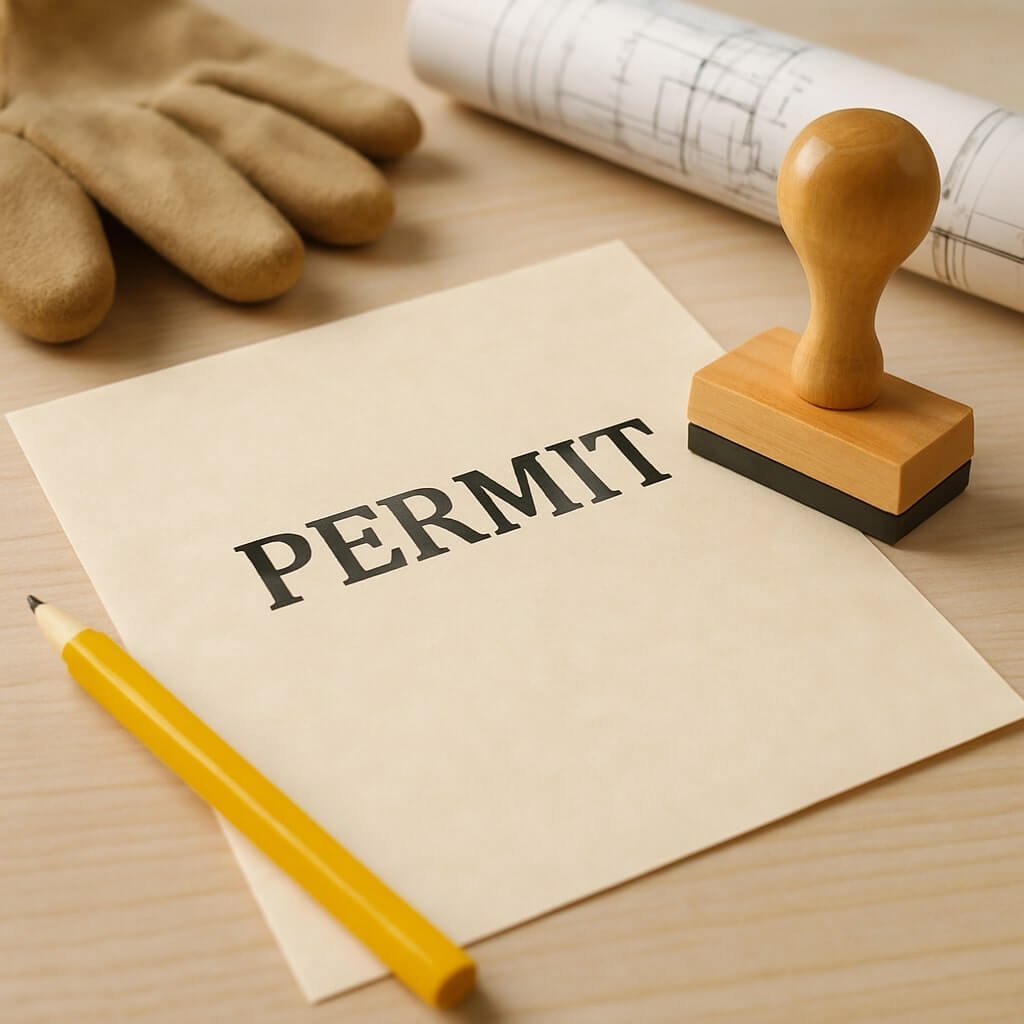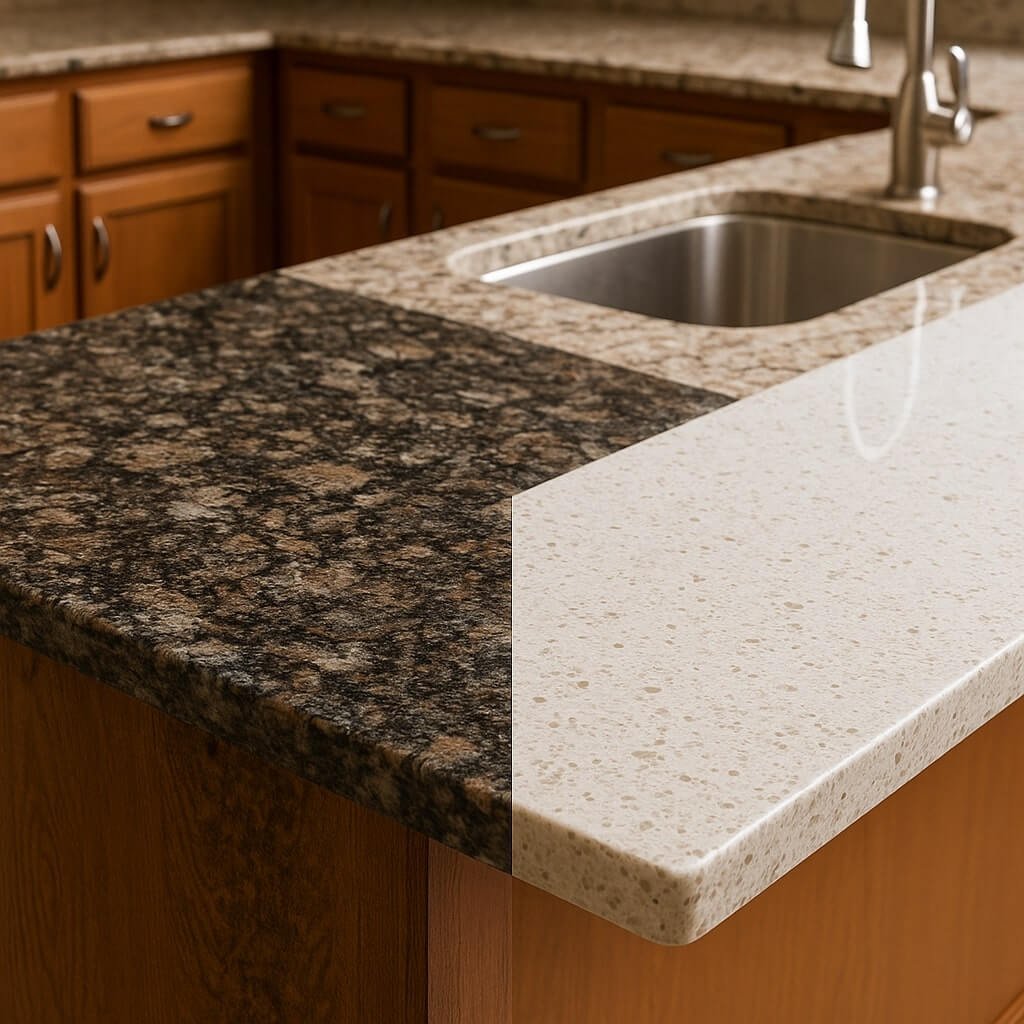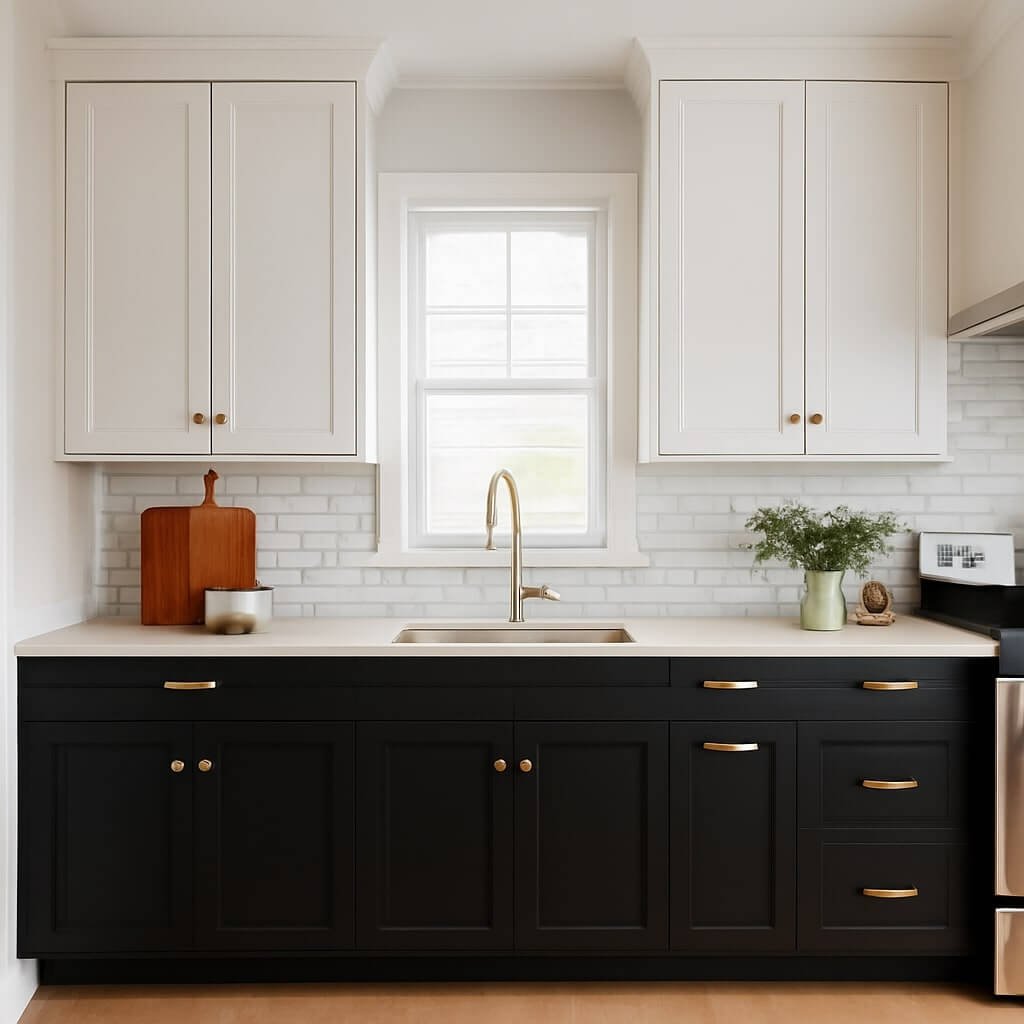Kitchens are the heart of the home, often experiencing heavy foot traffic throughout the day. From morning rushes to family dinners and weekend gatherings, your kitchen floor must be able to withstand wear and tear while still looking great. If you’re remodeling or building a new kitchen, choosing the best kitchen flooring for high-traffic areas is essential for both function and style.
In this guide, we’ll explore durable and stylish flooring options ideal for busy kitchens, plus key tips and answers to common questions to help you make the right choice.
1. Luxury Vinyl Plank (LVP): Durable and Water-Resistant
Why It Works:
Luxury Vinyl Plank (LVP) flooring is a top contender for high-traffic kitchens. It mimics the look of wood or stone but offers superior resistance to moisture, scratches, and stains. LVP is also softer underfoot than tile, making it comfortable during long cooking sessions.
Benefits:
- Waterproof and stain-resistant
- Easy to clean and maintain
- Available in a wide variety of colors and textures
- Budget-friendly and easy to install
Ideal For: Families, pet owners, and anyone seeking low-maintenance flooring.
2. Porcelain Tile: Built to Last
Why It Works:
Porcelain tile is known for its toughness and long lifespan. It’s a go-to option for kitchen floors in high-traffic areas due to its resistance to scratches, spills, and heat. Plus, modern porcelain tiles come in styles that mimic natural wood, marble, and concrete.
Benefits:
- Extremely durable and long-lasting
- Moisture and heat-resistant
- Easy to clean and sanitize
- Adds resale value to your home
Ideal For: Households that value classic, timeless flooring with excellent resilience.
3. Engineered Hardwood: Stylish and Sturdy
Why It Works:
Engineered hardwood offers the beauty of natural wood with added durability. It features a real hardwood veneer over a plywood core, making it more stable than solid hardwood, especially in moisture-prone areas like kitchens.
Benefits:
- Aesthetic appeal with real wood texture
- Resistant to warping and swelling
- Can be sanded and refinished (limited times)
- Available in various finishes and plank widths
Ideal For: Homeowners who want elegant, long-lasting flooring without sacrificing durability.
4. Cork Flooring: Comfortable and Eco-Friendly
Why It Works:
Cork flooring is soft, sustainable, and naturally antimicrobial. It’s a great option for those who spend lots of time in the kitchen and want a surface that’s gentle on joints and feet.
Benefits:
- Soft and comfortable underfoot
- Eco-friendly and renewable
- Resistant to mold and mildew
- Absorbs sound and insulates temperature
Ideal For: Eco-conscious households and homes with kids or seniors.
5. Concrete Flooring: Modern and Industrial Chic
Why It Works:
Polished concrete is a surprisingly stylish and durable option for high-traffic kitchens. It offers a sleek, modern look and can be stained, scored, or textured for added personality.
Benefits:
- Incredibly durable and long-lasting
- Stain-resistant when sealed properly
- Great for radiant heating systems
- Easy to clean and maintain
Ideal For: Industrial-style kitchens or contemporary homes looking for a unique design element.
Choosing the Right Kitchen Flooring: Key Factors
When selecting the best kitchen flooring for high-traffic zones, consider the following:
- Durability: Prioritize materials that resist scratching, denting, and wear.
- Moisture Resistance: Kitchens are prone to spills, so water resistance is essential.
- Comfort: Softer floors like cork or LVP are easier on your feet during long cooking sessions.
- Maintenance: Choose floors that are easy to clean and maintain.
- Style: Ensure the flooring matches your kitchen’s overall design aesthetic.
Frequently Asked Questions (FAQs)
What is the most durable kitchen flooring for high-traffic areas?
Porcelain tile and luxury vinyl plank are among the most durable options. Both are resistant to scratches, water, and daily wear.
Can hardwood flooring work in high-traffic kitchens?
Yes, engineered hardwood is more suitable than solid hardwood for high-traffic kitchens due to its enhanced stability and resistance to moisture.
Which kitchen flooring is easiest to clean?
Vinyl, tile, and polished concrete are the easiest to clean. They resist stains and don’t require special cleaners.
What is the most comfortable kitchen flooring?
Cork and luxury vinyl offer the most comfort underfoot, making them ideal for homes where people stand in the kitchen for long periods.
How often should kitchen floors be replaced?
High-quality tile or concrete can last decades. Vinyl and engineered wood may need replacement or refinishing after 10–20 years, depending on traffic and care.
Final Thoughts
Your kitchen flooring choice plays a major role in how your space functions and feels. For high-traffic areas, prioritize materials that balance style, strength, and ease of maintenance. Whether you love the cozy warmth of wood or the modern edge of concrete, there’s a perfect kitchen flooring option for every home.




